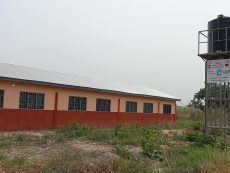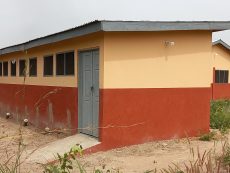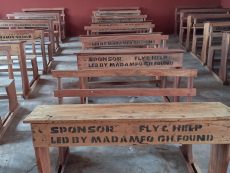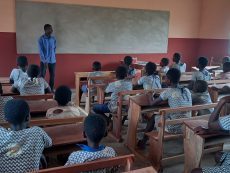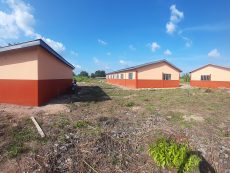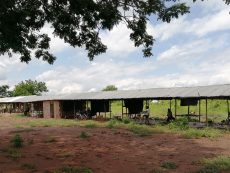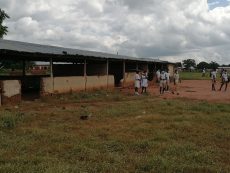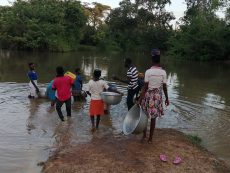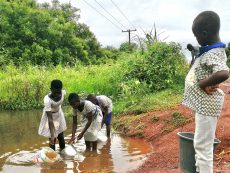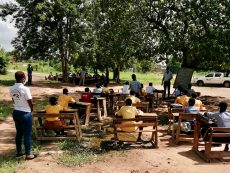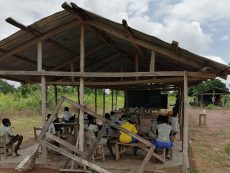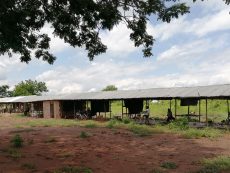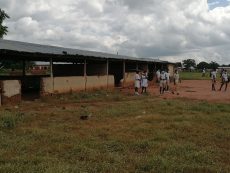
Abease School WaSH Project
Background of the School WaSH project
In schools, WaSH projects are an important element for positive changes, in the behaviour of children, with regard to hygiene. WaSH means: water, sanitation and hygiene. Access to clean drinking water and adequate sanitation is of fundamental importance for the children in Abono. Only in this way diseases can be prevented, important hygiene measures learned and regular school attendance – for both boys and girls – be made possible.
Another positive side-effect of the School WaSH project is, that once the students have learned the new hygiene standards, they help raise awareness among their parents/family/environment and become important agents of change in their communities.
It should be kept in mind at all times: Children are not only the generation of the future, but also future parents – and what they learn at school, they will pass on to their own children.
So WaSH projects in schools help not only the students, but also the entire community and future generations.
The WaSH project in Abease
Abease is located in the Prang District in the Bono East Region of Ghana and is a community of approx. 6,340 inhabitants, predominantly inhabited by farmers. The illiteracy rate in this district is far above the national average. This is due to the lack of school infrastructure, non-existent water supply and sanitation and a lack of teaching materials.
The SDA Basic School of Abease, with currently 200 pupils aged 6 to 12 years and 10 teachers, is particularly affected. The pupils have to fetch water from a stream 3 km away in the morning. As a result they often miss classes. Due to the polluted water, water-related diseases are often rampant among the pupils and teachers. There is no hygienic toilet facility, so that the children have to relieve themselves outside. Snake bites occur again and again, so many are so frightened, that they no longer attend school.
Especially for the girls the lack of a toilet is a big problem. As they have no privacy for their monthly hygiene, they do not come to school during this time. These conditions lead to a high number of school drop-outs. Teenage pregnancies and thus a low standard of living are often the result.
Benefits of the project:
- Access to clean water, adequate sanitation and hand washing facilities
- Promotion and training in the field of hygiene
- to enable girls to attend school even during their menstruation
- reduction of diseases caused by contaminated water
- meeting the drinking water needs of the school
Conclusion:
The project aims to improve the hygiene and health conditions of the beneficiaries (pupils, teachers and community members). Clean water, toilets and school places contribute to good health. The cornerstones of the project are the establishment of an appropriate infrastructure and raising awareness of hygiene issues. The local community is involved at all project levels. This strengthens the villagers’ own responsibility and makes the project sustainable. In addition, the information and training measures also have a certain multiplier effect – in other words, the pupils, teachers and all those involved in the project spread the new knowledge in the community. And this is the only way to achieve a profound and lasting improvement, in the hygiene situation in the entire community.
Status: completed; sponsor: Reiner Meutsch Stiftung FLY & HELP
Costs: approx. 101.500 €


